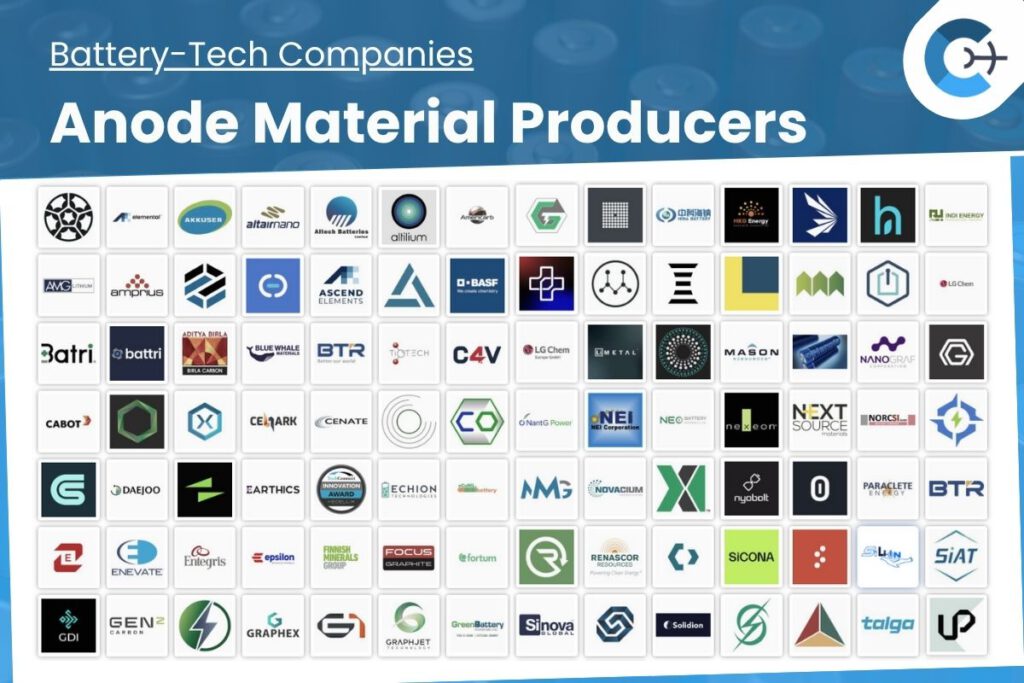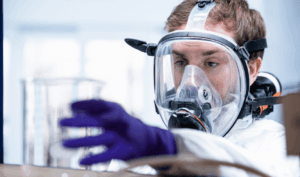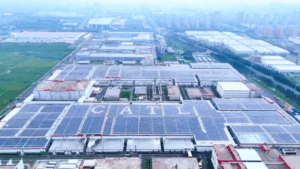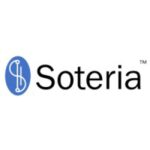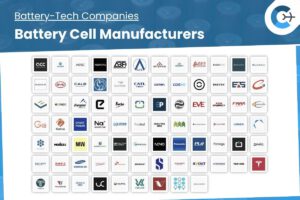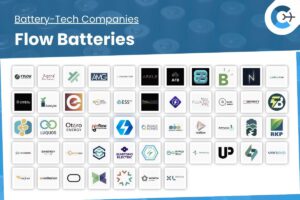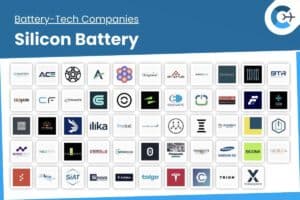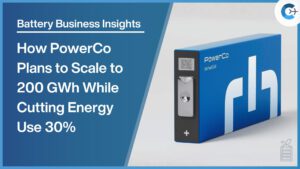Key Players in Battery Anode Material Production

Ionic Mineral Technologies
Ionic Mineral Technologies of Utah develops Ionisil™, an advanced nano-silicon anode for lithium-ion batteries. Their vertically integrated approach, using proprietary halloysite reserves, boosts battery capacity and charging speeds, supporting the growing electric vehicle market sustainably.

NEO Battery Materials
NEO Battery Materials Ltd., based in Vancouver and listed on TSXV and OTC, advances silicon anode technology for lithium-ion batteries. Their proprietary NBMSiDE® nanocoating boosts energy density and battery longevity, targeting electric vehicles, electronics, and energy storage applications.
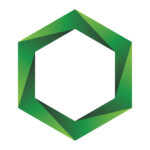
CarbonScape
CarbonScape Ltd, based in New Zealand, produces sustainable biographite for lithium-ion batteries using a patented, carbon-negative process that converts timber byproducts into high-quality graphite. Their scalable technology offers an eco-friendly alternative to traditional graphite, supporting cleaner energy storage solutions.

ADVANO
Founded in 2016 and based in New Orleans, ADVANO specializes in silicon-based anodes for lithium-ion batteries. Their proprietary REALSi™ technology boosts energy density, performance, and cost-efficiency, enabling advancements in electric vehicles, consumer electronics, and energy storage systems.

AE Elemental
AE Elemental, a joint venture between Ascend Elements and Elemental Strategic Metals, specializes in sustainable lithium-ion battery recycling for the EV industry. Utilizing advanced Hydro-to-Cathode® technology, their facilities in Poland and Germany achieve 99% material recovery, promoting a circular economy and environmental sustainability.
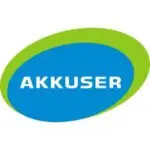
AkkuSer
Established in 2005 in Nivala, Finland, AkkuSer Oy specializes in sustainable battery recycling with its proprietary Dry-Technology. Processing diverse battery types without water or chemicals, they convert over 50% of materials into reusable resources, serving domestic and European markets.

Altairnano Inc.
Altairnano Inc., founded in 1973 in Reno, NV, specializes in advanced nanotechnology for energy storage. Their proprietary lithium titanate oxide (LTO) batteries offer high power, extended cycle life, and enhanced safety. Serving industrial, transportation, and grid sectors globally, Altairnano delivers sustainable, high-performance energy solutions.
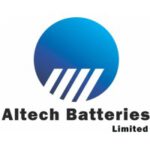
Altech Batteries
Altech Batteries Ltd, an Australian firm, pioneers innovative battery solutions for grid storage and lithium-ion markets. Its CERENERGY® and Silumina Anodes™ technologies offer enhanced safety, durability, and efficiency.
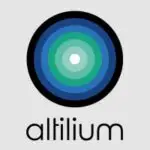
Altilium Clean Technology
Altilium Clean Technology, based in Plymouth, UK, specializes in recycling end-of-life EV batteries into high-quality materials using its proprietary EcoCathode™ process. Achieving high recovery rates and reducing carbon emissions, Altilium supports sustainable, circular supply chains in the UK’s electric vehicle sector.

Americarb
Americarb is a U.S.-based manufacturer of advanced carbon and graphite materials engineered for high-temperature industrial applications. Their processing yields key components for battery anodes and thermal management.

AMG Lithium GmbH
AMG Lithium GmbH, a Frankfurt-based subsidiary of AMG Critical Materials, operates Europe’s first lithium hydroxide refinery in Bitterfeld-Wolfen. Specializing in battery-grade lithium for electric vehicles and renewable energy storage, the company ensures a sustainable supply chain through vertical integration from mining to manufacturing and advances next-generation battery technologies.
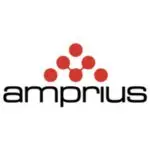
Amprius Technologies Inc.
Amprius Technologies Inc., founded in 2008 and based in Fremont, California, is a leading manufacturer of high-energy lithium-ion batteries using advanced silicon nanowire anode technology. Achieving up to 500 Wh/kg, Amprius serves electric vehicles, aviation, and portable electronics sectors. Listed on the NYSE as AMPX since 2022, the company is expanding its manufacturing to meet growing demand.

Amsted Graphite Materials
Amsted Graphite Materials, a century-old West Virginia leader, specializes in innovative graphite solutions for batteries, aerospace, and electric vehicles. As part of Amsted Industries since 2020, they serve clients in 35 countries with high-performance synthetic graphite and customized applications.

Anovion Technologies
Anovion Technologies is a leading U.S. manufacturer of high-purity synthetic graphite anodes for lithium-ion batteries. Utilizing advanced graphitization, they enhance battery performance for electric vehicles, energy storage, and electronics, while expanding domestic production to secure the supply chain.

Ascend Elements
Ascend Elements, headquartered in Westborough, MA, is a climate tech leader transforming the lithium-ion battery supply chain with its Hydro-to-Cathode® and Hydro-to-Anode™ technologies. Specializing in sustainable manufacturing and advanced recycling, the company produces high-performance materials for EV batteries, reducing waste and carbon emissions.

Aurubis
Aurubis AG, headquartered in Hamburg, leads global non-ferrous metal production and recycling. With over 150 years of expertise, it specializes in high-purity metals and innovative battery recycling technologies. Committed to sustainability, Aurubis drives the circular economy in e-mobility and renewable energy sectors.

BASF
BASF Corporation, headquartered in Germany, is a global chemical leader with over 200 production sites. Serving industries like automotive, electronics, and agriculture, it specializes in high-performance battery materials for electric mobility. Committed to sustainability, BASF promotes circular economy solutions and invests in innovative technologies.

BATRI Ltd
BATRI Ltd, established in 2020 in Bridgend, Wales, pioneers sustainable sodium-ion battery technology for energy storage. Specializing in low-cost, eco-friendly solutions, it drives innovation in grid and renewable systems.

Battri
Battri, founded in 2022 in France, specializes in recycling lithium-ion batteries across Europe. With a 97% efficiency facility, they recover key materials like lithium and cobalt, supporting the circular economy through end-to-end solutions and advanced technology.

Birla Carbon
Birla Carbon, a flagship of the Aditya Birla Group, leads globally in high-quality carbon black for tires, plastics, coatings, and energy systems. Operating 16 facilities in 12 countries, it also develops advanced battery materials, driving sustainability and innovation across industries.
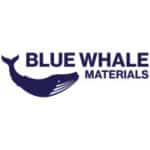
Blue Whale Materials LLC
Blue Whale Materials LLC, founded in 2015 in Washington, DC, specializes in sustainable lithium-ion battery recycling. Using proprietary technology, they produce Blacksand™ by recovering up to 98% of critical minerals like cobalt, nickel, and lithium, supporting electric vehicles and energy storage solutions.
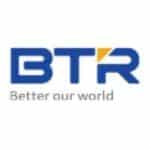
BTR Mediterranean New Material Technology
BTR Mediterranean New Material Technology, a subsidiary of BTR New Material Group, specializes in advanced anode and cathode materials for lithium-ion batteries. Based in Tangier, Morocco, it produces graphite and silicon-based anodes and high-nickel NCA cathodes, enhancing performance for electric vehicles and energy storage. Expanding BTR’s presence in Europe and North America.
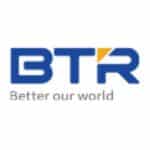
BTR New Material Group Co. Ltd
BTR New Material Group Co., Ltd., China’s largest lithium-ion battery materials manufacturer, specializes in advanced cathode and anode components. Serving global EV and battery leaders, BTR emphasizes research and development and has expanded production to Morocco and Indonesia.

C4V
C4V (Charge CCCV) based in Binghamton, NY, develops advanced lithium-ion batteries for electric vehicles, grid storage, and electronics. Founded in 2012, the company leverages patented sustainable chemistry and innovative manufacturing processes to enhance performance, reduce costs, and minimize environmental impact.
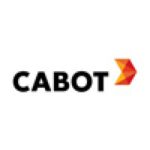
Cabot Corporation
Cabot Corporation, headquartered in Boston since 1882, is a global leader in specialty chemicals and performance materials. With $4.3 B in 2022 revenue, it drives innovation in lithium-ion battery technologies and sustainable solutions for transportation, infrastructure, and more worldwide.
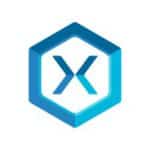
CarbonX
CarbonX, founded in 2014 as a Delft University spin-off, develops advanced carbon-based anode materials for electric vehicle batteries. Using proprietary emulsion feedstock technology, they enhance battery performance and sustainability. Led by CEO Rutger van Raalten and CTO Daniela Sordi, CarbonX is expanding production in Europe and the US with strong investor support.
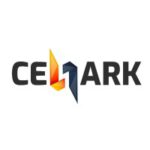
CELLARK POWERTECH
Cellark Powertech advances lithium-ion storage with breakthrough Porosil silicon anodes. Developed in India, its process boosts energy density by up to 30% and reduces anode use by over 50%, driving efficiency in battery applications.
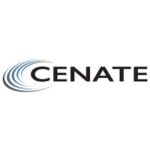
Cenate AS
Cenate AS, a Norwegian leader in silicon-based anode materials for lithium-ion batteries, develops nano-structured silicon that boosts energy density by up to 30% and reduces CO₂ emissions by over 93%. Their technology integrates seamlessly into existing manufacturing, enhancing batteries for electric vehicles, electronics, and more.

Cirba Solutions
Cirba Solutions is North America’s leading battery recycling and management company, offering sustainable end-of-life solutions for lithium-ion batteries. Using advanced hydrometallurgical technology, they recover critical materials to support circular supply chains for electric vehicles, electronics, and energy storage systems.

COnovate Inc.
COnovate Inc., based in Milwaukee since 2016, develops sustainable carbon-based nanomaterials like eCOPHITE™ to enhance lithium-ion batteries. Their bio-sourced anode materials offer faster charging, higher capacity, and improved performance for applications including electric vehicles and drones.

Coreshell
Coreshell Technologies, based in San Leandro, CA, develops advanced battery solutions for electric vehicles and renewable energy. Specializing in high-performance silicon anodes and proprietary nanolayer coatings, Coreshell enhances battery capacity, reduces costs, and improves sustainability, facilitating broader EV adoption.
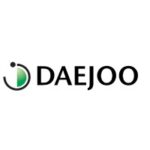
Daejoo Electronic Materials
Daejoo Electronic Materials, established in 1981, specializes in advanced battery and electronic materials. As South Korea’s sole mass-producer of silicon anodes, it drives innovation across EV, IT, and industrial applications.

E-Magy
Founded in 2013 in the Netherlands, E-Magy pioneers nano-porous silicon anode technology that boosts lithium-ion battery energy density by up to 40% and enables faster charging while integrating seamlessly with existing lines.

Earthics
Earthics employs proprietary metal–organic frameworks to capture CO₂ efficiently from industrial emissions. This scalable and cost-effective decarbonization solution helps heavy industries meet stringent net-zero targets.

Ecellix Inc.
Ecellix Inc., founded in 2018 in Seattle, develops advanced silicon-carbon anode technologies for lithium-ion batteries. Their flagship eCell™ enhances energy density by up to 50%, ensures high cycle life, and supports scalable, sustainable manufacturing, advancing energy storage solutions.

Echion Technologies
Echion Technologies, founded in 2017 as a Cambridge University spin-off, develops niobium-based XNO® anode materials for lithium-ion batteries. Their advanced technology enables rapid charging, high energy density, and over 10,000 cycles, catering to industries like rail, mining, and off-road vehicles. With sustainable production and significant investments, Echion is a leader in innovative battery solutions.

EcoNiLi Battery Group
Founded in 2021 and based in Malaysia, EcoNiLi Battery Group specializes in lithium-ion battery and solar panel recycling. Operating four facilities across Malaysia, Indonesia, and Spain, they process 86,000 metric tons annually using hydrometallurgical technology to recover valuable metals. Their solar-powered operations reduce carbon emissions by 45%, promoting sustainability in the circular economy.

Elkem ASA
Elkem ASA, established in 1904 in Norway, is a global leader in silicon-based materials with over 7,300 employees across 30 sites. Specializing in advanced solutions for battery technology, electric vehicles, and diverse industries, Elkem emphasizes sustainable and innovative production practices.
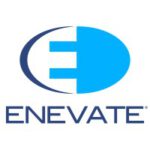
Enevate Corporation
Enevate Corporation, based in Irvine, California, specializes in advanced lithium-ion silicon-dominant anode technology for electric vehicles. Founded in 2005, Enevate’s innovations enable ultrafast charging, increased range, and improved battery performance, partnering with major automotive and battery manufacturers to drive EV adoption.

Entegris – POCO Materials
Entegris – POCO Materials, a division of Entegris, Inc., provides advanced synthetic graphite and silicon carbide solutions for semiconductors, aerospace, energy, and battery applications. With 50+ years of expertise, it drives precision manufacturing innovation.
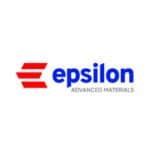
Epsilon Advanced Materials Pvt. Ltd.
Epsilon Advanced Materials Pvt. Ltd., founded in 2018, is a global leader in sustainable, high-performance battery materials for lithium-ion batteries. Specializing in advanced graphite anodes and lithium iron phosphate cathodes, they support EVs and energy storage systems with facilities across three continents.

Finnish Minerals Group – Suomen Malmijalostus Oy
Finnish Minerals Group is a state-owned leader in Finland’s battery and mining value chain. Specializing in sustainable lithium-ion battery materials and advanced production technologies, the company fosters strategic partnerships to support Europe’s transition to electric transportation.

Focus Graphite
Focus Graphite Inc. (TSXV: FMS) is a Canadian mining and exploration company based in Kingston, Ontario. Specializing in high-grade flake graphite for lithium-ion batteries, their Quebec projects leverage advanced, eco-friendly processing technologies to support the electric vehicle and renewable energy industries.

Fortum Battery Recycling
Fortum Battery Recycling, a European leader in sustainable battery recycling, uses advanced hydrometallurgical technology to recover over 95% of valuable metals from EV batteries. Operating Finland’s largest closed-loop facility, they provide high-purity materials for new battery production, supporting the circular economy.

GDI
GDI is a global leader in battery technology, specializing in 100% silicon anodes for lithium-ion batteries. Their innovative solutions enhance energy density and charging speed, catering to sectors like electric vehicles and aerospace. Supported by major investments, GDI aims for large-scale production by 2028.

GELON LIB GROUP
GELON LIB GROUP, established in 2003, is an integrated supplier of lithium-ion battery materials, equipment, and turnkey production systems. Operating with 100,000 m² of space and 500+ experts, the company drives advanced battery technology and innovative applications globally.
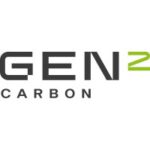
Gen 2 Carbo
Gen 2 Carbon, based in the United Kingdom, develops carbon fiber recovery and recycled nonwoven technologies. Its solutions drive decarbonization, support sustainable manufacturing, and foster a circular economy in automotive, aerospace, and renewables.

Grafintec
Grafintec Oy, based in Vaasa, Finland, leads in graphite technology for lithium-ion battery anode production. Emphasizing sustainable mining and advanced processing, it drives self-sufficiency in Europe’s battery value chain.

Graphex Group
Graphex Group Limited, founded in 1981 and headquartered in Hong Kong, specializes in producing spherical graphite for lithium-ion battery anodes used in electric vehicles. With a 10,000-ton annual capacity and expansion plans, the multinational supports the growing renewable energy sector through advanced graphite and graphene technologies.

Graphite One Inc.
Graphite One Inc. is a U.S.-based company building a complete graphite supply chain for electric vehicle batteries and energy storage. Operating America’s largest high-quality graphite deposit in Alaska, they mine, process in Ohio, and produce advanced battery-grade materials through strategic partnerships.
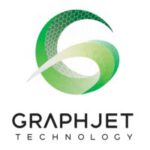
Graphjet Technology
Graphjet Technology (NASDAQ: GTI), founded in Malaysia in 2019, pioneers sustainable production of high-purity graphene and graphite from palm kernel shells. Their patented process cuts costs by 80% and CO₂ emissions, providing essential materials for electric vehicles and energy storage applications.

Green Battery Minerals
Green Battery Minerals is a Canadian junior mining company specializing in environmentally friendly battery-grade graphite and lithium for electric vehicles and renewable energy storage. Based in Quebec, they utilize sustainable mining practices and innovative processing technologies to meet the growing clean energy demand.

Green Graphite Technologies
Green Graphite Technologies (GGT), founded in 2021 in Montreal, specializes in sustainable battery-grade graphite for electric vehicles. Utilizing proprietary GraphPure™ and GraphRenew™ technologies, GGT transforms natural and recycled graphite with minimal environmental impact, supporting scalable, high-purity production.

Group14 Technologies
Established in 2015 in Woodinville, Washington, Group14 Technologies manufactures advanced silicon-carbon composite SCC55™, enhancing lithium-ion batteries with 50% longer life and faster charging. Their innovative technology supports electric vehicles, consumer electronics, and aviation applications, backed by major investors and global expansion.

HiNa Battery Technology Co. Ltd.
HiNa Battery Technology, founded in 2017 as a spin-off from the Chinese Academy of Sciences, specializes in advanced sodium-ion batteries for electric vehicles and energy storage. Leveraging over 30 patents and achieving up to 155 Wh/kg, HiNa offers safe, cost-effective alternatives to lithium-ion solutions.
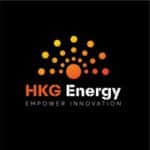
HKG Energy
HKG Energy elevates lithium-ion batteries through advanced silicon anode materials that boost energy density, speed charging, and extend cycle life. Their technology enhances EVs, consumer devices, and renewable storage.

HPQ Silicon Inc.
HPQ Silicon Inc., headquartered in Montréal, leverages PUREVAP™ technology to produce high-purity silicon and silica for sustainable applications. Its advanced materials boost EV battery performance and support low-carbon energy systems.

Hycamite
Hycamite leverages proprietary methane-splitting technology to decarbonize heavy industries. Its scalable plants produce low-carbon hydrogen and high-quality carbon products, including synthetic graphite for EV batteries.
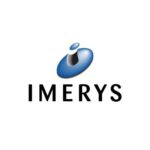
Imerys S.A.
Imerys S.A. is a French multinational leader in mineral-based specialty solutions. It delivers sustainable, high-performance materials for battery technology, EVs and industrial applications through advanced extraction and processing.
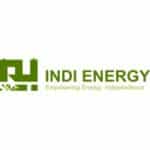
Indi Energy
Indi Energy, founded in 2019 by IIT Roorkee scientists, develops sustainable sodium-ion batteries using proprietary BioBlack™ technology. Based in Roorkee, India, they provide cost-effective and efficient energy storage solutions for renewable energy, electric vehicles, and consumer electronics, supporting global sustainability goals.

Innovamat Srl
Innovamat Srl, founded in 2021 as a joint venture between Quartz Srl and Rimsa, uses over 50 years of combined expertise to develop high-performance additives for friction materials. Their innovative solutions enhance braking efficiency while reducing emissions.

ionobell
Ionobell, a San Jose-based battery technology company, pioneers next-generation silicon-dominant battery solutions with porous nano-silicon anodes delivering up to 50% greater energy density than traditional cells. Its scalable platform enables cost-effective upgrades in automotive and consumer electronics sectors.

Leading Edge Materials Corp.
Vancouver-based Leading Edge Materials Corp. advances EU critical raw materials for clean energy technologies. Through projects like the Woxna Graphite mine and advanced ALD-coated battery anodes, they provide sustainable materials essential for lithium-ion batteries, electric motors, and wind power systems.

Leclanché SA
Leclanché SA is a Swiss leader in energy storage solutions, specializing in advanced lithium-ion technology and custom systems for transportation, utilities, and industry. With proprietary cell designs and sustainable manufacturing, they offer integrated solutions from cell production to system integration.

LeydenJar
LeydenJar, founded in 2016 in the Netherlands, develops advanced pure silicon anodes for lithium-ion batteries, boosting energy density by 70% and cutting CO₂ emissions by 85%. Their technology enhances batteries for electric vehicles, electronics, and more, promoting sustainable energy storage solutions.
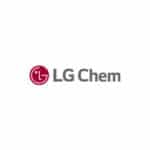
LG Chem
Founded in 1947, LG Chem is South Korea’s largest chemical company and a global leader in petrochemicals, advanced materials, life sciences, and battery technology. With over 18,750 employees and 50,656 patents, LG Chem pioneers lithium-ion batteries for electric vehicles and energy storage through significant projects and strategic partnerships.
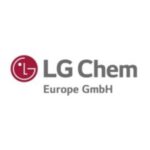
LG Chem Europe GmbH
LG Chem Europe GmbH, a subsidiary of South Korea’s LG Chem Ltd., is a global leader in chemical manufacturing and advanced materials. Specializing in lithium-ion battery technology for electric vehicles and energy storage, the company leverages innovations like NexulaTM and collaborates on sustainable projects, reinforcing its strong market position.
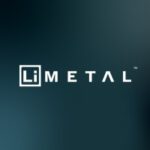
Li-Metal
Li-Metal Corp, founded in 2019 in Canada, specializes in sustainable lithium metal anodes and production technologies. They develop advanced battery materials for higher energy density in electric vehicles and energy storage, using innovative, eco-friendly processes to enhance performance and reduce costs.

Lomiko Metals
Lomiko Metals Inc., based in Quebec, is a Canadian mining company specializing in high-grade graphite and lithium for electric vehicle batteries and clean energy technologies. Their La Loutre project ranks as the 7th largest graphite deposit globally, strengthening North American battery material supply chains with sustainable practices.

Malvern Panalytical
Malvern Panalytical is a global leader in advanced analytical instrumentation, delivering precision measurement solutions for materials science and battery technology. Their innovative tools enhance product development and process efficiency.
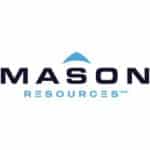
Mason Resources Inc.
Mason Resources Inc., based in Toronto, specializes in mining industrial and specialty minerals for battery applications. Leveraging strategic acquisitions and innovations in graphite and graphene, the company enhances battery performance for electric vehicles and renewable energy, prioritizing sustainability and long-term shareholder value.
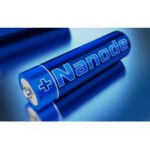
Nanode Battery Technologies
Nanode Battery Technologies, a 2020 spin-off from the University of Alberta in Edmonton, Canada, develops high-performance tin-based alloy anodes for lithium and sodium-ion batteries. Their innovative solutions enable fast charging and long-lasting batteries for electric vehicles, electronics, and aerospace applications.

NanoGraf Corporation
NanoGraf Corporation, based in Chicago since 2012, develops advanced silicon-graphene anode materials for lithium-ion batteries, increasing energy density by up to 50%. Their innovative technology supports electric vehicles, consumer electronics, and military applications, strengthening the U.S. battery supply chain.

Nanografi
Established in 2011 in Ankara, Turkey, Nanografi manufactures advanced nanomaterials like carbon nanotubes and graphene for industries including energy storage, aerospace, and construction. Serving over 50 countries, the company enhances battery technologies and develops innovative applications in neuroprosthetics and energy solutions.
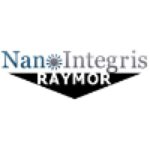
NanoIntegris Technologies Inc.
NanoIntegris Technologies Inc., based in Boisbriand, Quebec, provides high-purity nanomaterials including graphene and carbon nanotubes for advanced battery and industrial applications. Their solutions boost performance and efficiency.
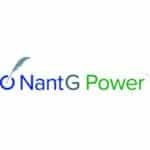
NantG Power
NantG Power, based in El Segundo, CA, specializes in advanced lithium-ion battery design and manufacturing. Using AI and innovative materials, they achieve over 1,500 Wh/L energy density with rapid charging and sustainable practices. They collaborate with industry leaders to deliver high-performance, eco-friendly energy solutions.

NEI Corporation
NEI Corporation, founded in 1997 in Somerset, NJ, specializes in advanced materials for lithium-ion and sodium-ion batteries. Leveraging nanotechnology and materials science, they produce high-performance cathodes, anodes, and solid electrolytes, enhancing battery efficiency, safety, and longevity for global industries.

Nexeon Ltd
Nexeon Ltd, founded in 2006 as an Imperial College London spin-off, is a global leader in silicon anode materials for lithium-ion batteries. Their NSP2™ technology boosts energy density by up to 50%, enabling smaller, more efficient batteries for electric vehicles, electronics, and medical devices.

NextSource Materials Inc.
NextSource Materials Inc., based in Toronto, specializes in high-quality SuperFlake® graphite for electric vehicle batteries. Operating the Molo Graphite Mine in Madagascar, they produce advanced spheronized and purified graphite materials. The company is expanding global Battery Anode Facilities to support the growing EV market with sustainable, high-performance battery components.
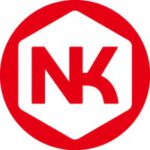
Nippon Carbon Co., Ltd.
Nippon Carbon Co., Ltd. (est. 1915, Tokyo) produces synthetic graphite anode materials, artificial graphite electrodes, carbon fibers and silicon carbide fibers. Products serve EV batteries, semiconductors, steelmaking and energy storage.
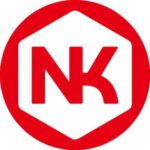
Nippon Kornmeyer Carbon
Nippon Kornmeyer Carbon Group (NKCG) is a global provider of engineered carbon and ceramic solutions. Leveraging decades of expertise from Germany and Japan, NKCG innovates advanced battery-grade materials for lithium-ion applications.

Nlevel
Nlevel, founded in 2021 in Cologne, Germany, develops advanced modular battery control systems that enhance battery performance, safety, and flexibility. Their innovative technology enables direct energy exchange between renewable sources and electric vehicles without additional infrastructure, optimizing energy management and storage.
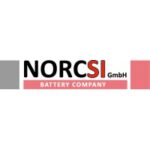
NorcSi GmbH
NorcSi GmbH, founded in 2020 in Halle, Germany, specializes in high-performance silicon anodes for lithium-ion batteries. Their patented technology enhances energy density and charging speed, applicable to electric vehicles, electronics, and more, supported by advanced manufacturing capabilities.

Northern Graphite
Northern Graphite is North America’s sole graphite producer, mining and processing graphite for battery and industrial uses. With projects in Canada and Namibia, the company emphasizes sustainable development and advanced battery materials, including its proprietary Porocarb® technology for high-performance lithium-ion and solid-state batteries.

Nouveau Monde Graphite
Nouveau Monde Graphite (NYSE: NMG) is a leading North American provider of sustainable, carbon-neutral graphite for lithium-ion batteries used in electric vehicles and renewable energy storage. Headquartered in Quebec, NMG oversees the full value chain from mining to advanced manufacturing, utilizing proprietary technologies to ensure high-quality, eco-friendly products.
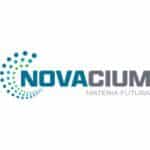
Novacium SAS
Novacium SAS, founded in 2022 in Solaize, France, is a materials science startup advancing silicon-based anode technology for high-performance lithium-ion batteries and innovative hydrogen production through recycling improvements.
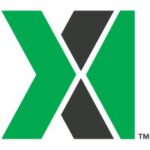
NOVONIX
NOVONIX is a North American leader in high-performance synthetic graphite and advanced cathode materials for lithium-ion batteries. Utilizing innovative UHPC technology and sustainable manufacturing, NOVONIX supports the electric vehicle and energy storage industries with durable, efficient battery solutions.

Nyobolt
Nyobolt, founded in 2020 in Cambridge, UK, develops advanced niobium-based batteries enabling ultra-fast charging for electric vehicles, industrial robotics, and heavy-duty applications. Led by Professor Clare Grey and CEO Dr. Sai Shivareddy, Nyobolt offers high-performance, thermally managed battery solutions.

OneD Battery Sciences
OneD Battery Sciences, founded in 2013 in Palo Alto, develops advanced silicon nanowire-based SINANODE technology for electric vehicle batteries. Their innovations enhance energy density, accelerate charging, and lower costs, positioning OneD as a key player in advancing EV battery performance and adoption.

Paraclete Energy
Paraclete Energy, based in Chelsea, Michigan, develops advanced SILO Silicon™ anode materials for lithium-ion batteries, enhancing electric vehicle performance with higher energy density and faster charging. Partnering with major automakers, they drive innovation in EV battery technology.
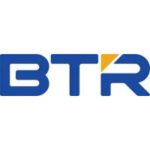
PT Indonesia BTR New Energy Material (Kendal)
PT Indonesia BTR New Energy Material, a BTR New Material Group subsidiary, manufactures advanced natural and artificial graphite anode materials for lithium-ion batteries in Kendal, Indonesia. With a $478M investment and a planned 160,000-ton capacity by 2025, it supplies global leaders like BYD and Samsung, enhancing the international battery supply chain.

Regen Resource
Regen Resource Recovery, based in Welland, Ontario, produces sustainable synthetic graphite for EV batteries and industrial applications. Their advanced technology enhances battery performance for sectors like aerospace and energy storage. A strategic location ensures efficient North American distribution.
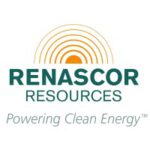
Renascor Resources Limited
Renascor Resources Limited, based in Adelaide, Australia, specializes in high-purity battery anode materials from its Siviour Graphite Project. Utilizing sustainable processes, Renascor produces Purified Spherical Graphite for lithium-ion batteries, supporting renewable energy and electric vehicles.

SGL Carbon
SGL Carbon is a global leader in carbon-based solutions, specializing in graphite, carbon fibers, and composites. Serving industries like sustainable mobility, semiconductors, renewable energy, and battery production, the company drives innovation with €1.1 billion revenue in 2023 and 4,800 employees across 29 locations worldwide.

Sicona Battery Technologies
Sicona Battery Technologies, based in Australia, develops advanced silicon-carbon anode materials using proprietary SiCx® technology. Their innovations enhance lithium-ion battery energy density and charging performance for electric vehicles and energy storage, supporting the global transition to electrification.

Sila Nanotechnologies
Sila Nanotechnologies Inc., founded in 2011 in California, enhances lithium-ion batteries with its Titan Silicon anode material. Offering higher energy density and faster charging, Sila’s technology improves electric vehicles and electronics. Partnering with industry leaders, the company has raised over $1.4 B to scale production.

SiLi-ion Inc.
SiLi-ion Inc. pioneers advanced lithium-ion battery technology with its innovative silicon-carbon additive, which leverages silicon nanoparticles and recycled materials to enhance energy density and charging speed efficiently.

Sino Applied Technology (SiAT)
Sino Applied Technology (SiAT), founded in 2018 in Taoyuan City, Taiwan, specializes in advanced nano-materials for lithium-ion batteries. Their innovative nano silicon anodes and SWCNT conductive pastes enhance battery efficiency and longevity, supporting renewable energy adoption.
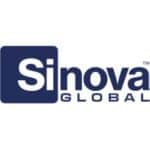
Sinova Global
Sinova Global, based in Canada, produces high-purity silicon metal crucial for clean energy. Its integrated process—from quartz mining to metal refinement—drives innovations in solar panels, semiconductors, and EV battery systems.

Soelect
Soelect Inc., based in Greensboro, NC, pioneers lithium-ion battery technology with LiX® anode and solid-state electrolytes. Their scalable production delivers fast charging, high energy density for EVs, electronics, and aerospace.

Solidion Technology Inc.
Solidion Technology Inc., based in Dallas, specializes in advanced battery technologies for electric vehicles and renewable energy. Holding over 500 patents, the company leads in silicon anodes, nanostructured graphene-sulfur cathode, sustainable graphite production, and graphene-enhanced fast-charging solutions.

Superior Graphite
Superior Graphite, founded in 1917 and based in Chicago, is a global leader in advanced graphite and carbon materials. Utilizing eco-friendly purification technologies, it serves industries like battery production, metallurgy, and thermal management, driving innovation in energy storage and sustainable solutions.

Syrah Resources Ltd
Syrah Resources Ltd, an Australian leader in industrial minerals and technology, specializes in natural graphite and active anode materials for lithium-ion batteries. As the only vertically integrated graphite AAM supplier outside China, Syrah delivers high-quality, eco-friendly products to global battery and industrial markets.
Battery Anode Material Overview
Anode materials are a foundational component of battery technology, acting as the negative electrode in an electrochemical cell. Within lithium-ion batteries, the anode’s primary function is to store and release lithium ions during charging and discharging cycles. As the electrode where oxidation occurs, it facilitates the flow of electric charge that powers devices. The choice of anode material directly influences a battery’s most important performance attributes, including its energy density, charging speed, operational lifespan, and safety profile.
Key characteristics of the technology
The anode’s material composition and physical structure have a significant effect on the final battery cell’s behavior and specifications.
- Performance Impact: The anode dictates several performance benchmarks.
- Energy Density: Determined by the amount of lithium the material can store per unit of mass.
- Charging Speed: Governed by the rate at which lithium ions can diffuse into the anode’s structure.
- Cycle Life: Affected by the anode’s structural stability during repeated ion insertion and removal.
- Safety: Influenced by volume changes during cycling and the stability of the solid-electrolyte interphase (SEI) layer, which can affect thermal safety.
- Cost Contribution: Anode materials typically account for 10–15% of the total manufacturing cost of a lithium-ion battery cell, a smaller portion compared to the more expensive cathode materials.
- Manufacturing Process: The production of anodes involves several precise steps:
- Material Synthesis: Active anode materials are synthesized into specified compounds.
- Slurry Preparation: The active material is ground into a fine powder and mixed with binders and solvents to create a paste-like slurry.
- Coating and Drying: The slurry is applied in a thin, uniform layer onto a metal foil (often aluminum) and then dried in an industrial oven.
- Calendering: The dried, coated foil is passed through heavy rollers to compress the material, ensuring uniform thickness and good adhesion.
- Cutting and Assembly: The finished anode foils are cut to size and integrated with other components to build the complete battery cell.
- Sustainability through Recycling: As battery demand grows, using recycled content in anode production is becoming essential. Materials from manufacturing scrap and end-of-life batteries can be repurposed, conserving natural resources, lowering the carbon footprint of production, reducing waste, and creating more secure domestic supply chains for critical minerals.
Technology classifications / types
Anode materials are classified based on their core chemistry, with each type offering a distinct set of performance trade‐offs.
- Graphite: For decades, graphite has been the industry standard due to its stable, layered structure that allows for consistent lithium ion intercalation. It is reliable and offers excellent electrochemical stability over thousands of cycles. Its theoretical capacity is 372 mAh/g.
- Silicon-Based Anodes: Silicon is a highly promising next-generation material because its theoretical capacity of 4,200 mAh/g is more than ten times that of graphite, potentially increasing energy density by 20–40%.
- Silicon-Graphite Composites: To manage the challenges of pure silicon, manufacturers often create composites that incorporate a small amount of silicon into a graphite base, improving energy density while maintaining better structural stability than silicon alone.
- Lithium Titanate (LTO): LTO anodes are known for exceptional stability and a long cycle life, achieving over 10,000 cycles in some applications. Their “zero-strain” structure experiences negligible volume change, permitting very fast charging. The primary disadvantage is a lower operating voltage, resulting in lower overall energy density.
- Anodes for Sodium-Ion Batteries: With the growth of sodium-ion chemistry, new anode types have been developed.
- Hard Carbon: The most common anode for sodium-ion batteries, valued for its structural stability and compatibility with sodium ions.
- Tin-Carbon Composites: Newer blends are being developed to improve capacity retention over long-term cycling.
- Anode-Free Designs: Advanced research is exploring anode-free battery architectures, particularly for solid-state batteries. These designs eliminate the traditional anode host material entirely, plating lithium metal directly onto the current collector during charging to substantially increase energy density.
Development and commercialization challenges
- Silicon’s Volume Expansion: The primary obstacle for silicon anodes is their severe swelling—up to 400%—during charging, which can cause electrode cracking, unstable SEI formation, and drastically reduced cycle life.
- Graphite’s Capacity Limitations: While stable, graphite’s theoretical capacity limits the energy density of modern batteries, driving the search for alternatives.
- Performance Balance: Balancing improvements in one area without degrading another remains a challenge—for example, increasing energy density must not come at the expense of safety or cycle life.
- Manufacturing at Scale: Scaling a new material from lab development to reliable, affordable mass production for the global EV and energy storage markets is complex and resource-intensive.
Recent developments and examples
- Sila Nanotechnologies and Group14 Technologies are commercializing silicon-graphite composite materials as “drop-in” replacements for traditional graphite, engineered to manage silicon expansion and enable higher energy densities and faster charging speeds in consumer electronics and EVs.
- Amprius Technologies pioneers silicon nanowire anodes, a structure that accommodates silicon’s volume changes and allows ultra-high energy density cells for aviation and advanced EV applications.
- Green14, a Swedish startup, is developing a hydrogen plasma reactor to produce silicon-based anode material from quartz and hydrogen, aiming for a cost-competitive, low-carbon manufacturing pathway.
Geopolitical Challenges
- Heavy Supply Chain Concentration in China: China dominates the global supply of battery anode materials, producing about 97-98% of the world’s graphite anode material used for lithium-ion batteries. This extreme concentration puts global supply chains at risk, especially as geopolitical tensions rise.
- China: 97.5% market share, reflecting near-total control of the global supply.
- Japan: 1% market share, known for supplying premium technology and joint ventures.
- Korea: 1% market share, participating primarily through global partnerships.
- US/EU: 0.5% market share, reflecting emerging but still nascent local production capacity.
- Export Controls and Trade Barriers: China has imposed export controls on key battery minerals such as graphite, requiring special permits for export since 2023. These measures increase the risk of supply disruptions and price spikes, especially for countries aiming to localize battery manufacturing. The US and EU have responded with increased scrutiny and, in some cases, proposed tariffs or restrictions on batteries and battery materials sourced from “foreign entities of concern,” particularly targeting China.
- Policy Uncertainty and “Impracticable-to-Trace” Materials: The US recently exempted graphite from certain battery supply chain restrictions until 2027, labeling it “impracticable-to-trace,” a move that some industry leaders argue could stagnate domestic anode supply chain development. Policy shifts, especially in the context of US elections and changing administrations, add uncertainty to long-term investments in anode material production outside China.

